Awards don’t spoil Esther Eppstein’s faith in the underground
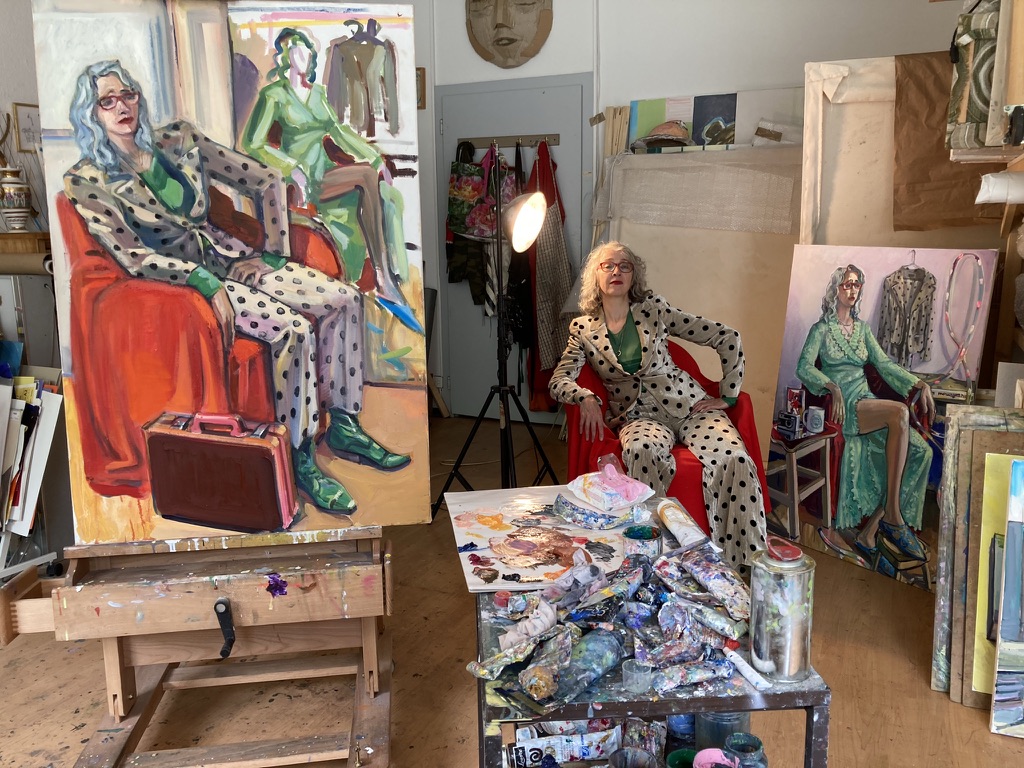
Her art is non-material, and her salons have been a privileged stage of the cultural evolution of Zurich over the past three decades. This year, Esther Eppstein, the grande dame of the Zurich independent art scene, was finally recognised by the Swiss establishment with the Prix Meret Oppenheim 2021. A surprise? Yes and no.
Eppstein’s life and art are made by, with, through and for other people. In 1996 she opened her first message salon in Zurich’s red-light district, in a street renowned for its massage parlors. Ten years later she moved to a space formerly occupied by a boutique, Perla Mode, and kept the name for her new salon space. Perla Mode closed in 2013, but Eppstein never stopped her artistic activities. Since 2015 she’s been running an artist residency art project, the Message Salon EmbassyExternal link.
Eppstein, 54, knows she could have surfed the waves she herself helped create, becoming a gallerist or an arts dealer and taking her due share of the millions of dollars turned over by the Zurich art scene since the boom of the 1990s. But she remains faithful to her underground spirit.
The pandemic has affected the cultural scene directly, and a couple of weeks ago Eppstein curated an auction of artworks to help local artists.
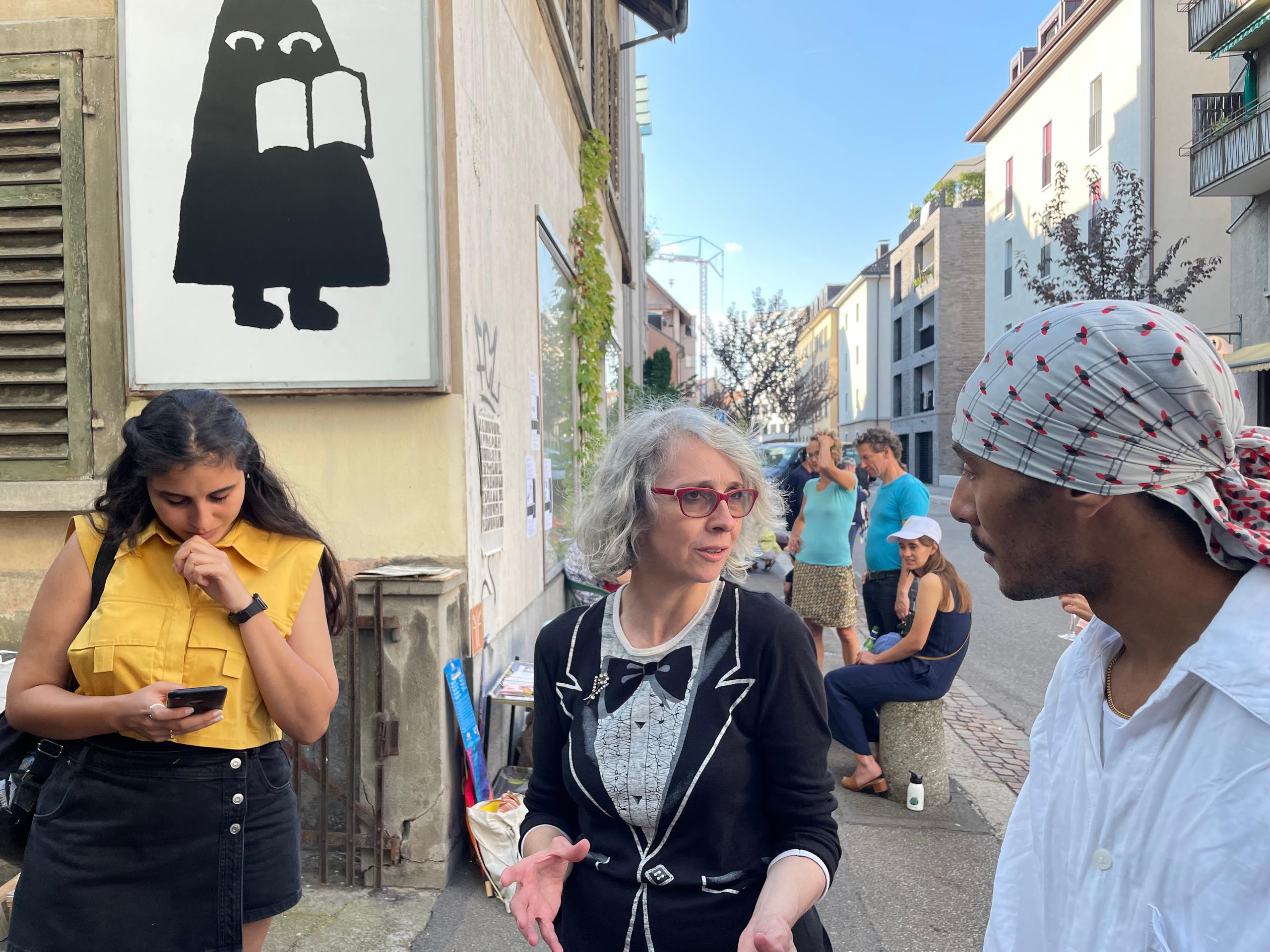
SWI swissinfo.ch: You were quite ahead of your time when you began to promote what was later called relational aestheticsExternal link. How did this idea come to you?
Esther Eppstein: To answer this, we have to know the context of Zurich in the 1980s and 1990s. The 1980s were marked by a series of street riots; it was a movement in which young people were longing for cultural spaces. I was a teenager at that time, and I watched this movement that was so full of energy and creativity being repressed by the police and politics. By the end of the 1980s Zurich became a very dark city. Nothing was happening; the atmosphere was very heavy.
SWI: There was also drug addiction and AIDS on a big scale. Zurich at that time was famous all over the world because of its open-air junkie scene.
E.E.: Exactly. At the beginning of the 1990s the city was struggling with the ‘drug disease’, and the city was empty. Families left, businesses left, factories began to close down, and at the same time there was a political change when a left-wing government was elected. The new government wanted to make the city a place where people would like to live again. They knew that culture could help create new atmospheres, especially in abandoned or problematic quarters.
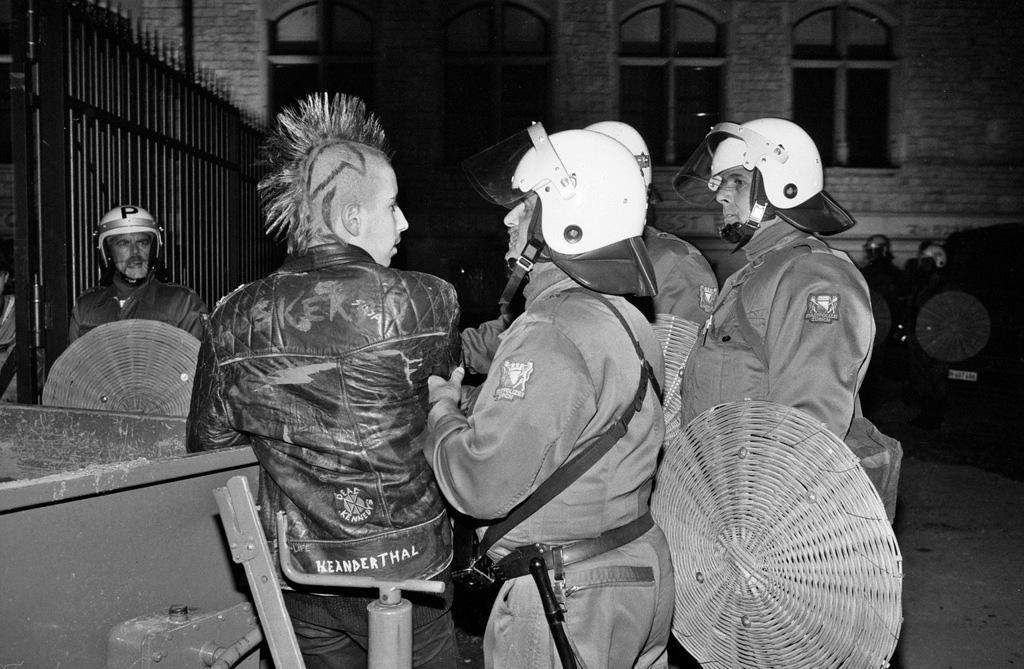
More
25 years on: the end of Zurich’s open drugs scene
The University of Arts didn’t exist yet. My generation socialised in squats, illegal bars – that was the model of the time. We strived to create an alternative culture. I wanted to break out of my isolation as a young mother. I had dropped out of school. But since there was no model of what we could be, I looked at some artist-run spaces and felt that’s the thing I’d like to do.
SWI: Did you already have a concept in mind before you launched your first message salon?
E.E.: I just wanted to start my own space. I am a practical person; I was not just sitting down devising concepts for weeks or hours. I just found the space and started doing exhibitions with friends, and those friends brought other friends, and suddenly this thing became a dynamic. And because there was nothing else going on in town, and it was a time of change in the city, the things we did soon became very popular.
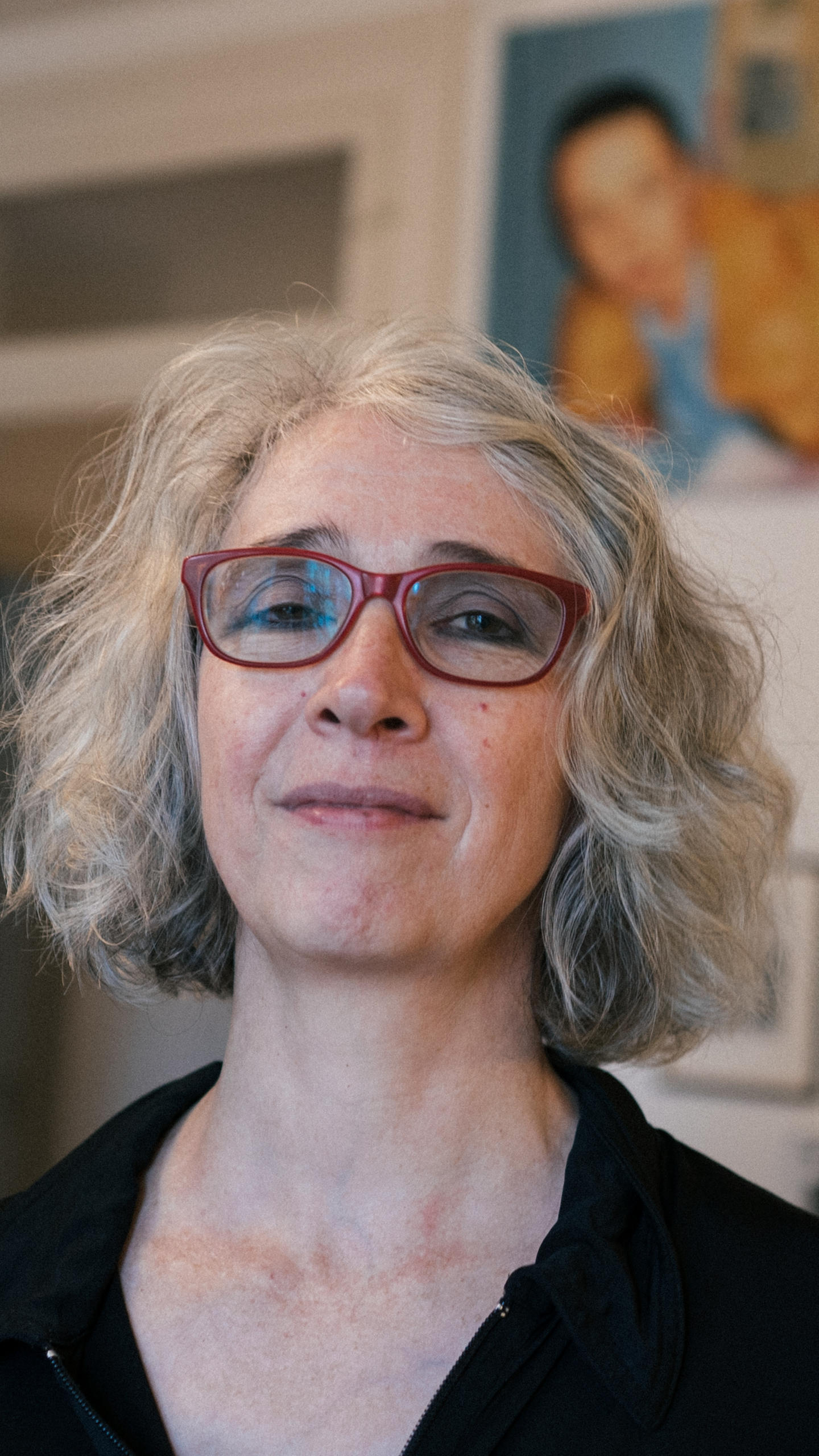
More
Who are you, Esther Eppstein?
SWI: There was at the time a certain hunger for art and culture. That’s quite a different scene compared with Zurich today. How do you feel about the current atmosphere?
E.E.: It’s a totally different city today – it’s a small metropolis. Culturally speaking, the world is now here. There are many public spaces where people can meet. All these things were not possible in the 1980s and 1990s.
In one way Zurich became a very nice place – I wouldn’t like to have that atmosphere of the 1990s back. However, I’d still like to have some of it, because suddenly everything here in Zurich became too hyped. With the opening of the Löwenbräu space [a complex of high-end art galleries], some young Swiss artists became very visible, very famous.

More
Zurich takes centre stage of contemporary art scene
SWI: But that was what you were looking for at the time, wasn’t it?
E.E.: Visibility for me was the big thing in the 1990s, because after those dark times in the 1980s, hiding in the underground, in basements and cellars, the time came to be visible, because being visible was a political statement. It doesn’t mean making political art with militant discourses or activism, but just the fact that we lived our lifestyle in a visible manner, in dialogue with the people walking by, as an offer: this is a political act. In a society which is not open, which is repressive, artists are the first to disappear, they cease to be visible. That’s why I believe that doing art in public is political.
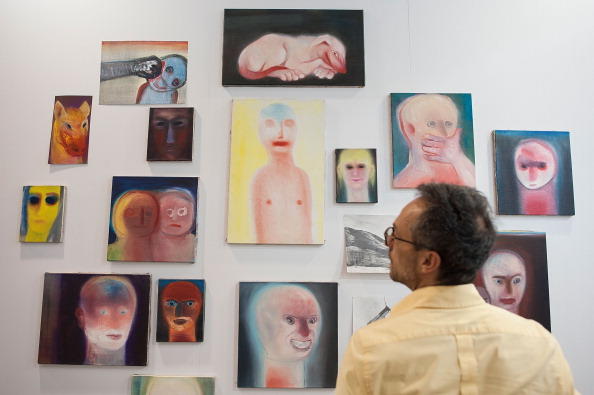
More
Women artists struggle for visibility in Swiss museums
I do regret that it all became very business-like, very focused on competition, events and the economy of attention. What I miss of the 1990s is the solidarity, because the art market and the funding of art is based on a lot of competition and rivalry instead of coming together and creating our own value, universal. Zurich is one of the main cities for the art market…
SWI: And also for making art?
E.E.: That’s another question. In one way Zurich is a good place because there is money for culture. I don’t want to only complain, because this is a good place – I can make things happen – but I think it also has to do with the whole institutionalising of art, including the arts school, the Arts University.
SWI: Maybe because it transforms the artist in a profession like any other one?
E.E.: Yes, but it’s very ambivalent, because on the other hand we were fighting for this, for the recognition that we are doing a job and important things for society. Just to have a diploma is not enough, because in the end the real world and the market are saying what is going on, so it’s still not that simple.
In one way I think it’s good that we have education and the possibility for anyone to go to art school or to art university, but what I don’t like is the definition of success. What does success mean? Does it mean having a gallery after my bachelor diploma? Does it mean that I’m appearing in some ranking list?

SWI: … and you won the Prix Meret Oppenheim, the most prestigious art award of Switzerland!
E.E.: Yes!
SWI: Were you surprised?
E.E.: I did not expect it, but I was not surprised. Of course, I am very happy, but I also see it as a duty, in the sense that I can be a role model for young artists, as saying, ‘hey you can have your art life also in a different way’. Because I never ran an institution, I was always beside this institutionalised art life, but at the same time I was also a little bit part of it.
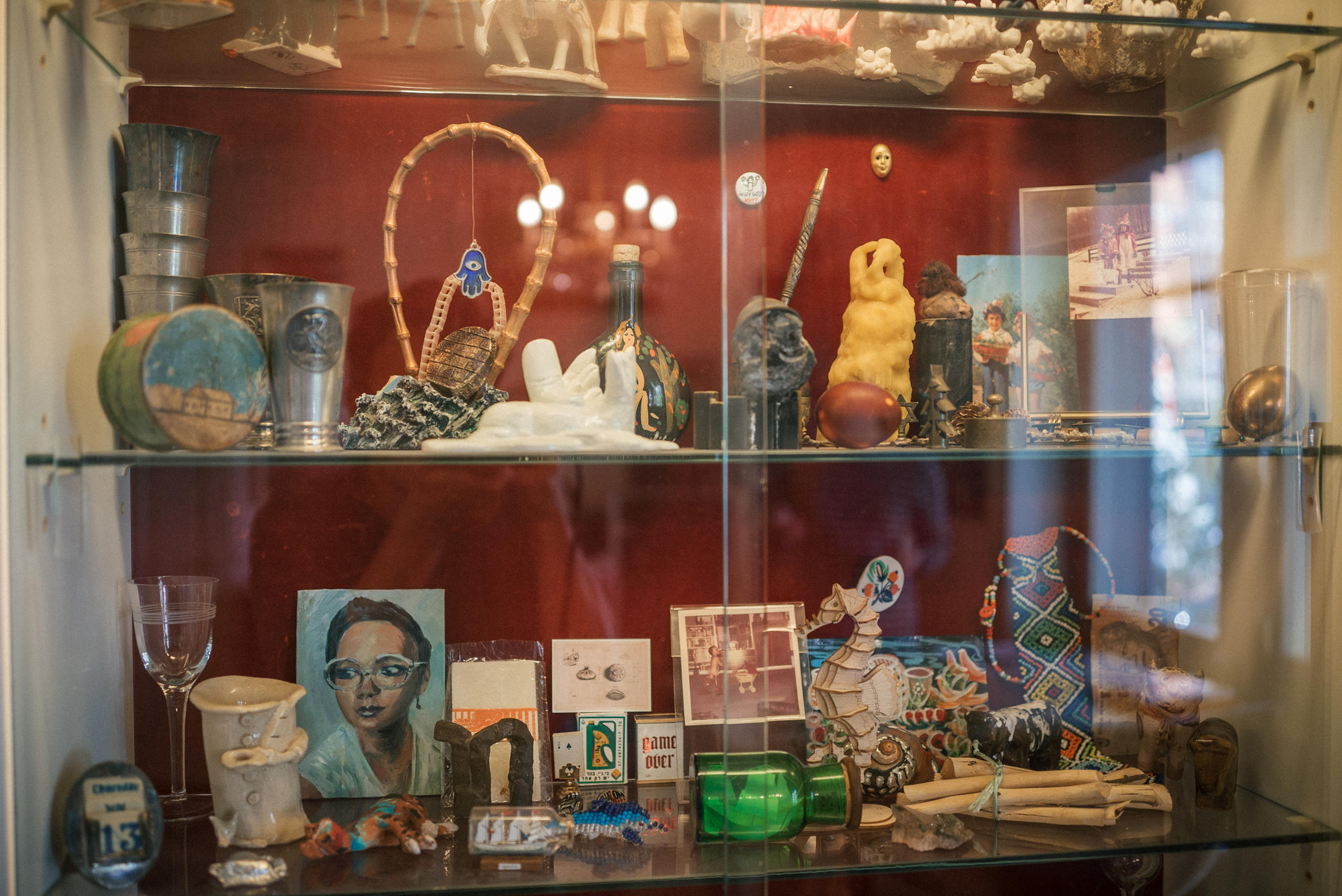
SWI: Haven’t you ever had any international, global ambition?
E.E.: No. After the message salon, some of the artists I showed there started to have a career also because I was giving them a stage to be visible, and they came to me and said, Esther we want you to be our gallerist. And I said, what? Gallerist? I said, oof, I don’t like this elitist thing, the market, and I didn’t feel comfortable with this.
It’s not that I don’t like galleries – I think they are also an important part in artists careers – but that just wasn’t my real interest. I was at that point between the underground and the shot to visibility. And it is precisely this junction between underground and visibility that I’m interested in.
I also decided that, if an artist is with me and feels like they want to go another step, I just let them go. It’s fine for me if someone goes to a gallery because I don’t want to do this. I want to hang out with the artists. I don’t want to hang out with the collectors, even though they are important.
Nothing against collectors, but my interest is the place where things are not labelled yet, where you have to take a risk, and the thing is uncertain. Sometimes I invited artists that even I didn’t understand what they were doing. That’s why I decided at some point I don’t need to do this kind of career thing.
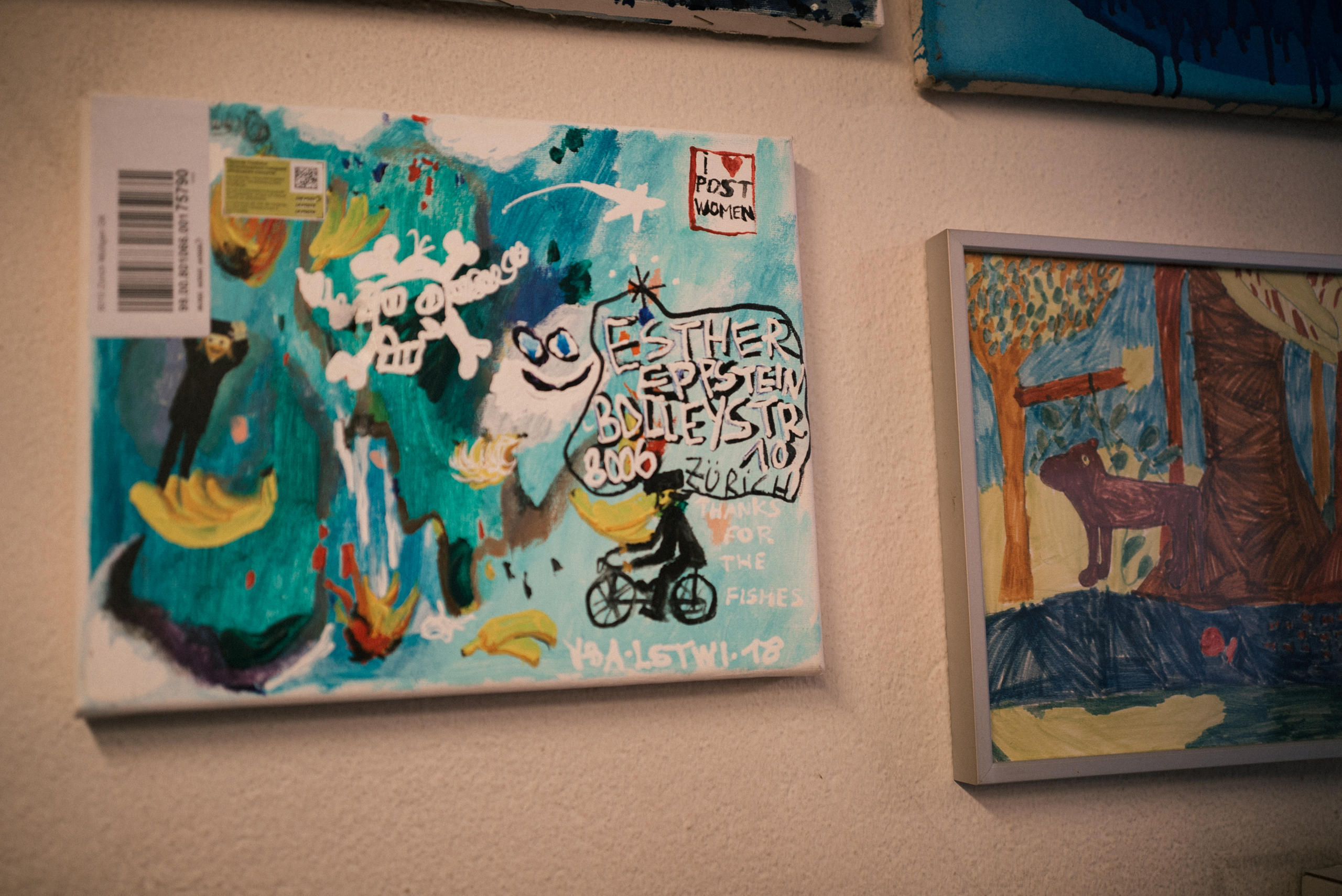

In compliance with the JTI standards
More: SWI swissinfo.ch certified by the Journalism Trust Initiative











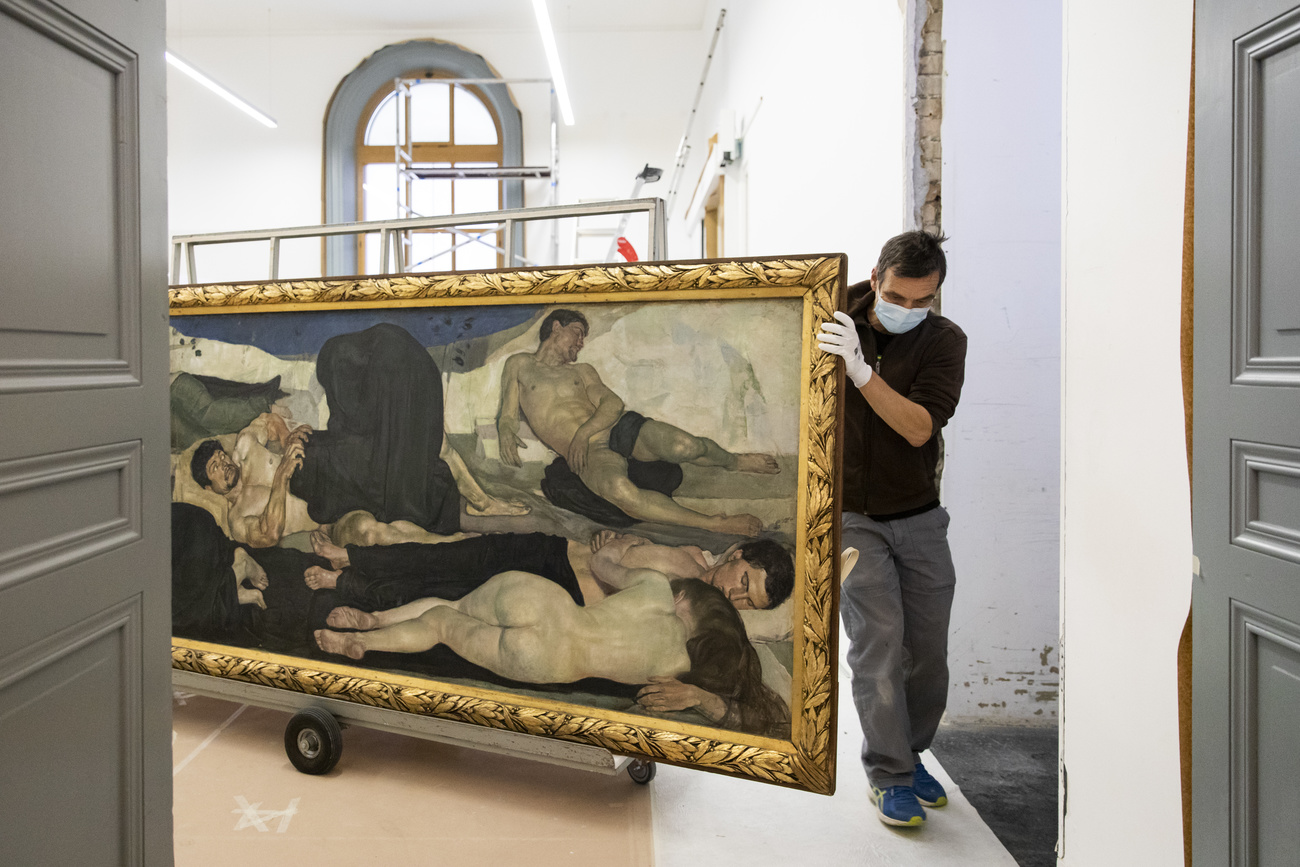
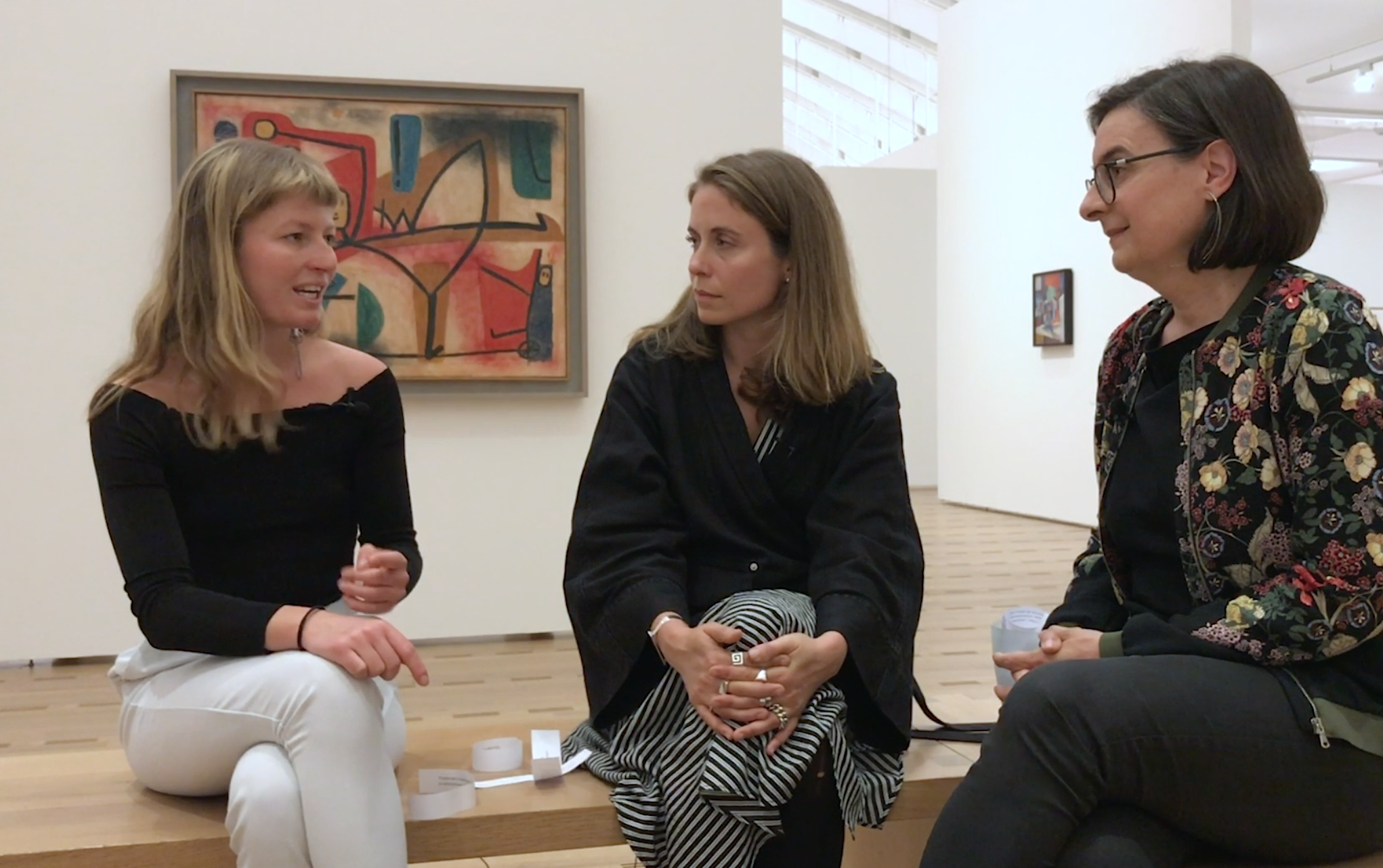
Join the conversation!